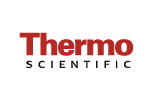About Thermo Fisher Scientific
Thermo Fisher Scientific Inc., headquartered in Waltham close to Boston in USA, is the world leader in serving science, with more than 50,000 employees in 50 countries. We help our customers accelerate research, solve complex analytical challenges, improve patient diagnostics and increase laboratory productivity. Through our premier brands – Thermo Scientific, Applied Biosystems, Invitrogen, Fisher Scientific and Unity Lab Services – we offer an unmatched combination of innovative technologies, purchasing convenience and comprehensive support, ranging from analytical instruments and equipment, consumables and reagents, software and services.
Thermo Scientic stands for innovative analytical instruments, lab equipment and specialty diagnostics that provide rapid and accurate results for customers in research, clinical and applied markets. With factories all over the world, we develop and produce world-class instrumentation for a wide variety of applications, like medical research, pharma and diagnostics, chemistry, oil and gas industry, earth and life sciences and food and beverage control.
Bremen
The Thermo Fisher Scientic factory in Bremen is seen as the innovation leader in analytical instrumentation and is a Thermo-designated Center of Excellence of mass spectrometry. Our history goes back to 1947. Back then, a young physicist, Dr Ludolf Jenckel (1912 – 1990), employee at Shipyard Atlas works, asked his management for permission to develop a mass spectrometer. His request was denied as the project was seen to be “too exotic” and did not fit into the field of activities of the yard. Dr Ludolf Jenckel, however, persisted. He rented a basement room in a hospital, where he, together with a colleague from the shipyard, further pursued his ideas at his own risk. After a year of hard work, Dr. Jenckel had completed the first prototype. He went back to the management and this time he was successful. A small division, Atlas MAT (Mess und Analysentechnik, “measurement and analysis technology”), became responsible for the construction, production and sales of the first mass spectrometers from Bremen.
Today, Thermo Fisher Scientic in Bremen employs more than 375 people from 21 different countries. Located adjacent to the Bremen airport, our factory develops, manufactures, markets and supports a range of sophisticated products. At the end of 2015, the factory was expanded, doubling its floor space.
We offer a variety of Magnetic Sector Mass Spectrometers as well as Infrared Spectrometers for isotopic abundance and elemental analysis, which are used in a wide variety of fields. From our roots in earth sciences and the nuclear fuel cycle, including nuclear safeguards, the applications now are found in ecology, biology, environmental monitoring, medical research, food control, forensics, sports and animal doping, and semiconductor manufacturing. The Bremen Advanced Mass Spectrometer facility also manufactures Orbitrap Mass Spectrometers and instrumentation for trace elemental analysis, including AA, ICP-OES and Quadrupole ICP-MS
Our innovative portfolio for isotope ratio and elemental analysis includes:
- Gas Isotope Ratio Mass Spectrometry (IRMS)
- Organic Elemental Analyzers (OEA)
- Isotope Ratio Infrared Spectrometry (IRIS)
- Thermal Ionization Mass Spectrometry (TIMS)
- Multicollector ICPMS (MC-ICPMS)
- High Resolution ICPMS (HR-ICPMS)
- Quadrupole ICPMS (Q-ICPMS)
- Glow Discharge Mass Spectrometry (GDMS)
- Noble Gas static vacuum Mass Spectrometry
We are proud that our many customers have made our instruments the most scientifically productive as documented in a series of comprehensive bibliography of papers published in the refered scientic literature. Our team of dedicated product specialists and engineers provide world-wide customer support and training. Our many successful collaboration projects are documented in the many co-authored conference contributions and scientic publications, and many innovative new instruments. We also partner with EU in International Training Network projects employing PhD students and Postdocs and providing training and workshops.

